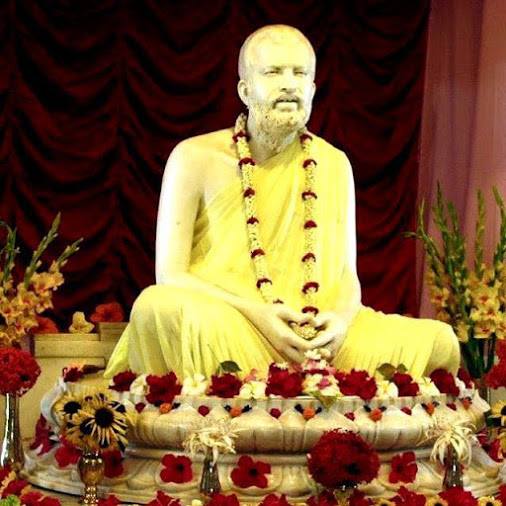THE RAMAYANA : 21.
(Delivered at the Shakespeare Club, Pasadena, California, January 31, 1900)
21.
A few days after Sita's disappearance, a messenger came to Rama from the gods, who intimated to him that his mission on earth was finished and he was to return to heaven. These tidings brought to him the recognition of his own real Self. He plunged into the waters of Sarayu, the mighty river that laved his capital, and joined Sita in the other world.
This is the great, ancient epic of India. Rama and Sita are the ideals of the Indian nation. All children, especially girls, worship Sita. The height of a woman's ambition is to be like Sita, the pure, the devoted, the all-suffering! When you study these characters, you can at once find out how different is the ideal in India from that of the West. For the race, Sita stands as the ideal of suffering. The West says, "Do! Show your power by doing." India says, "Show your power by suffering."
The West has solved the problem of how much a man can have: India has solved the problem of how little a man can have. The two extremes, you see. Sita is typical of India — the idealised India. The question is not whether she ever lived, whether the story is history or not, we know that the ideal is there. There is no other Paurânika story that has so permeated the whole nation, so entered into its very life, and has so tingled in every drop of blood of the race, as this ideal of Sita. Sita is the name in India for everything that is good, pure and holy — everything that in woman we call womanly.
If a priest has to bless a woman he says, "Be Sita!" If he blesses a child, he says "Be Sita!" They are all children of Sita, and are struggling to be Sita, the patient, the all-suffering, the ever-faithful, the ever-pure wife. Through all this suffering she experiences, there is not one harsh word against Rama. She takes it as her own duty, and performs her own part in it.
Think of the terrible injustice of her being exiled to the forest! But Sita knows no bitterness. That is, again, the Indian ideal. Says the ancient Buddha, "When a man hurts you, and you turn back to hurt him, that would not cure the first injury; it would only create in the world one more wickedness." Sita was a true Indian by nature; she never returned injury.
Swami Vivekananda
To be continued ...





Comments
Post a Comment